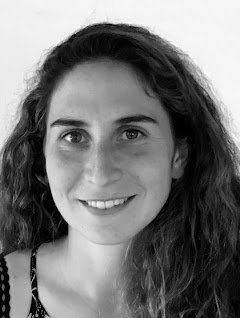Beat
Breaking news, portraits, technology, food, style, nature.
One Shot

“I had been photographing Cory and Isha all day and it was one of the first times they were not as aware of me. Most of the day they tried to get me to hang out with them. But at this moment, even though they weren’t interacting, there was an intimacy between the two of them that I felt I was able to capture.”
Profile
I remember walking into the art fair at my middle school and looking at black and white darkroom prints on the wall. I probably stood in front of these two images for fifteen minutes. They were holga photos of a large mansion. It wasn’t anything special but the images took my breath away. I think they transported me to another place and made me nostalgic. I knew right then I had to enroll in photography classes.
I took classes in high school. I shot film, developed in the darkroom and made prints. It was a lot of fun. But I improved greatly when digital cameras came out. They allowed me to shoot endlessly and see the mistakes I was making and quickly learn from them. I also looked at the work of other photographers and then of course there is always practice, practice and more practice.
I never particularly thought, “I want to become a photographer” but I just couldn’t get away from it. I tried to study medicine and I kept getting drawn back to photography. When I moved to New York City, I wandered the streets with my camera just discovering the city through my lens. My camera became my excuse to explore. I didn’t really know that photography could be a career necessarily, I just kept shooting and learning. I think I wanted to become a photographer because I wanted to freeze moments in time. I wanted to record them and share them. Photography is an incredibly powerful tool. It’s a language that goes beyond words, tradition and culture.
I got the phone call when I was walking my dog in San Francisco and the editor asked me to be in Oakland in twenty minutes for a Black Lives Matter protest. I knew it was impossible to make it there in twenty minutes but I said yes to it anyway and rushed there. My legs were shaking as I was driving because I was so nervous.
The stressful part was not being prepared. I didn’t get the names of any of the people I photographed, which was unacceptable and I didn’t have a work flow so I was fumbling as I tried to file my images. I learned a lot that day and it will stick with me forever.
I love when a subject comes back to me saying that they felt their story was heard and told and that they felt their images captured a true reflection of themselves or the situation.
Stories that have a local focus and a national angle excite me the most. Stories that are about San Francisco but really tell us about the country as a whole. For example, the fading middle class is something very apparent in San Francisco but it is also a big problem in cities across the nation.
We need photojournalism to inform people not only of what is happening but what it looks like. People connect to emotion and to photographs because they can imagine themselves in those places. Photographs create empathy and force people to engage with a topic up close.
Be skeptical and be patient, but also have fun! This job is mentally and physically taxing so it’s good to try and have fun and not get too bogged down.
Talk to other photojournalists in the field to hear what works for them. Everyone is different but finding a work flow that works for you is very important. In terms of getting work, don’t get discouraged by rejections or not hearing back from editors. To be successful, you must be persistent and push to be seen and heard.
Watching Eric Thayer’s work unfold during last year’s U.S. elections was remarkable. His images were thoughtful, accurate, and surprising. He has a way of balancing his composition and light to create a surprise element to each of his photos. I really admire his work and I’d love to pick his brain one day.
Many people are worried that photojournalism is dead or dying but people consume images now more than ever. I don’t think there will ever be a time when accurate, skillful imagery isn’t needed but I do think the photojournalism community needs to rise up and demand fair pay for the tireless work that we do.
Behind the Scenes

